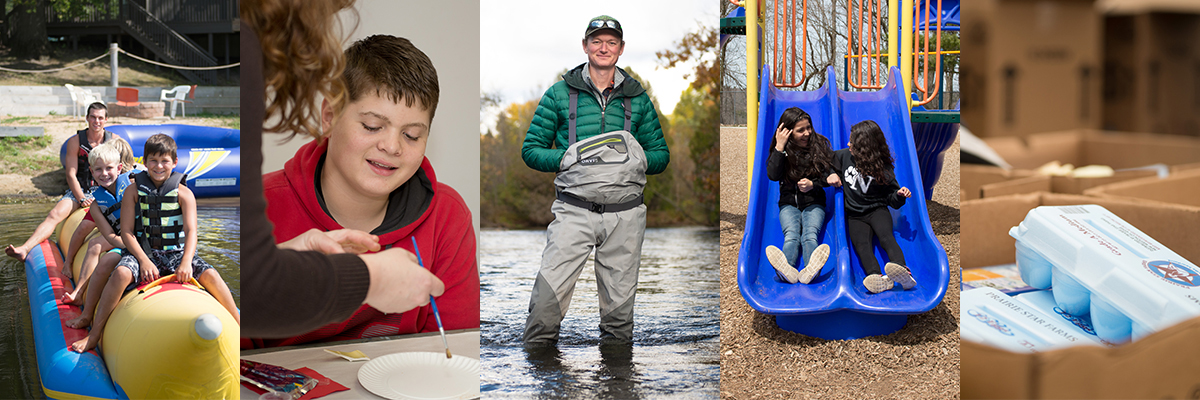
Fremont Area Community Foundation manages 25 separate grant rounds annually, including rounds for our three geographic affiliates. The grant review process is similar for all 25 rounds with some variations due to geographic area, strategic focus area, or fund restrictions. Each grant area has written guidelines that detail the goals, requirements, and focus area details. These guidelines are available on our website and are provided to prospective grant applicants at grantee workshops or individual meetings.
Once grant applications are received from the online grant portal, staff and committee members begin to review them for completeness, adherence to grantmaking guidelines, organizational capacity, and other due diligence. An online scoring process is used by each reviewer, allowing them to numerically rate several sections of the grant application. Scores are then aggregated and a final score is generated for each application. Reviewers can also ask follow-up questions which are sent back to applicants so additional clarification can be provided.
The final score, responses to questions, and a summary is prepared for each grant application. A committee meeting is then scheduled to review each grant summary, and a recommendation is made. Typically, each grant application will either be denied, partially funded, or fully funded. Variations to these alternatives could include a portion being funded as a matching grant (e.g., $0.50 awarded to the grantee for each $1 raised and documented by the applicant), contingency approvals (e.g., Community Foundation funding is only approved if the applicant receives funding from other sources), or phased awards (e.g., half of funds awarded up front, the second half awarded upon successful completion of first half activities).
Once committee recommendations are made, the Board of Trustees reviews recommendations and makes final decisions. Factors considered include the available grant funding in each round, the number of applications received, the scoring summary of each application, applicant capacity, and other information that might be relevant to individual grant applications.
Staff will then communicate the final decision directly to applicants. Staff will follow up with recipients throughout the year by visiting them, preferably when the grant-funded activity can be observed. For applicants who were not funded, staff will meet with them to provide feedback on why the denial was made and suggestions for improving future applications.
Successful grantees receive grant funding, implement the activity, project, or program funded with the grant, then provide follow-up reports back to the Community Foundation. Grantee success stories are written and shared in various Community Foundation publications.



